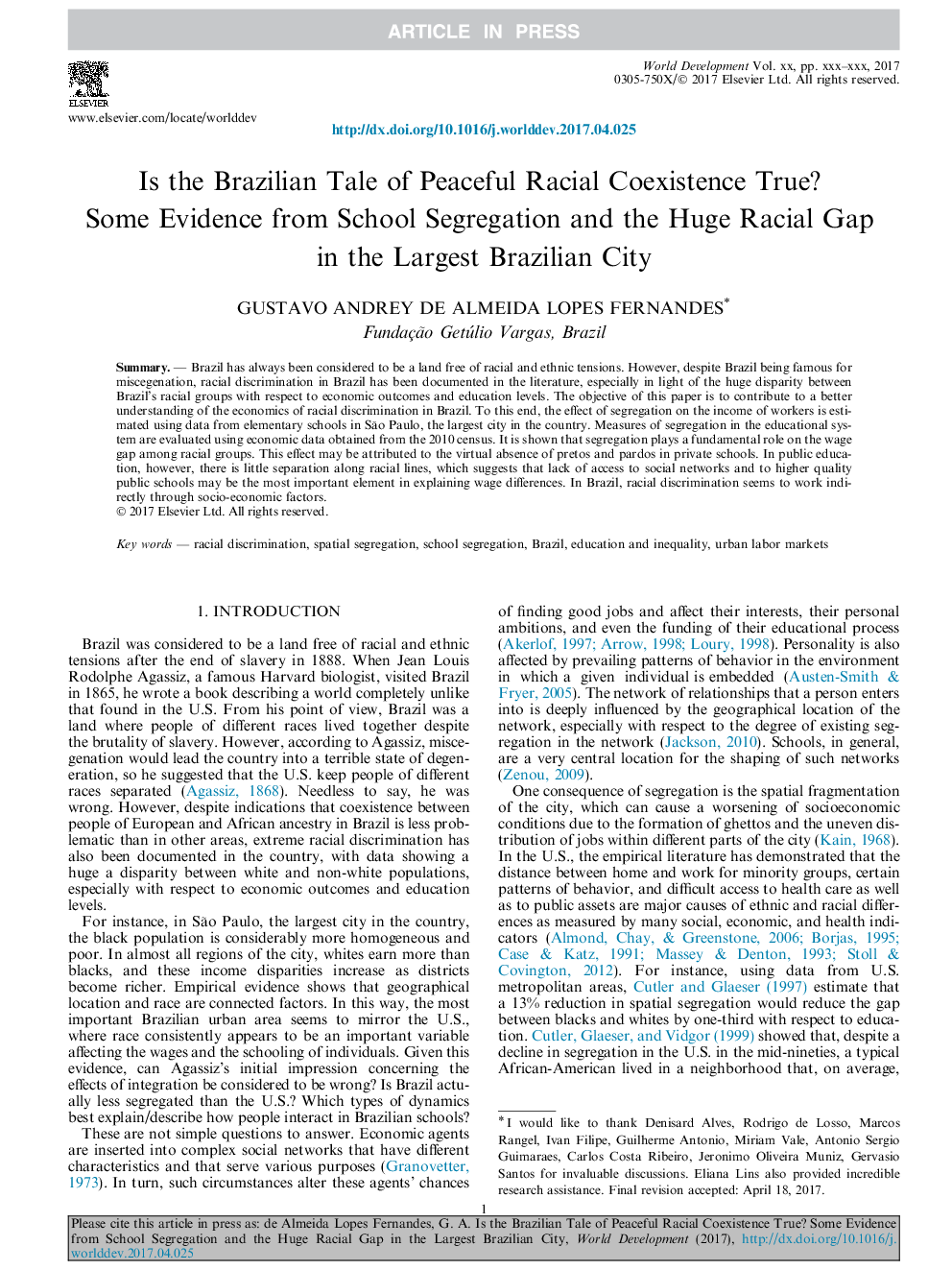ترجمه فارسی عنوان مقاله
آیا داستان برزیل از همزیستی مسالمت آمیز مسالمت آمیز واقعی است؟ برخی شواهد از تقسیم مدرسه و گسست نژادی بزرگ در بزرگترین شهر برزیلی
عنوان انگلیسی
Is the Brazilian Tale of Peaceful Racial Coexistence True? Some Evidence from School Segregation and the Huge Racial Gap in the Largest Brazilian City
| کد مقاله | سال انتشار | تعداد صفحات مقاله انگلیسی |
|---|---|---|
| 130883 | 2017 | 16 صفحه PDF |
منبع

Publisher : Elsevier - Science Direct (الزویر - ساینس دایرکت)
Journal : World Development, Volume 98, October 2017, Pages 179-194
ترجمه کلمات کلیدی
تبعیض نژادی، جدایی فضایی، جدایی مدرسه، برزیل، آموزش و نابرابری، بازار کار شهری،
کلمات کلیدی انگلیسی
racial discrimination; spatial segregation; school segregation; Brazil; education and inequality; urban labor markets;

